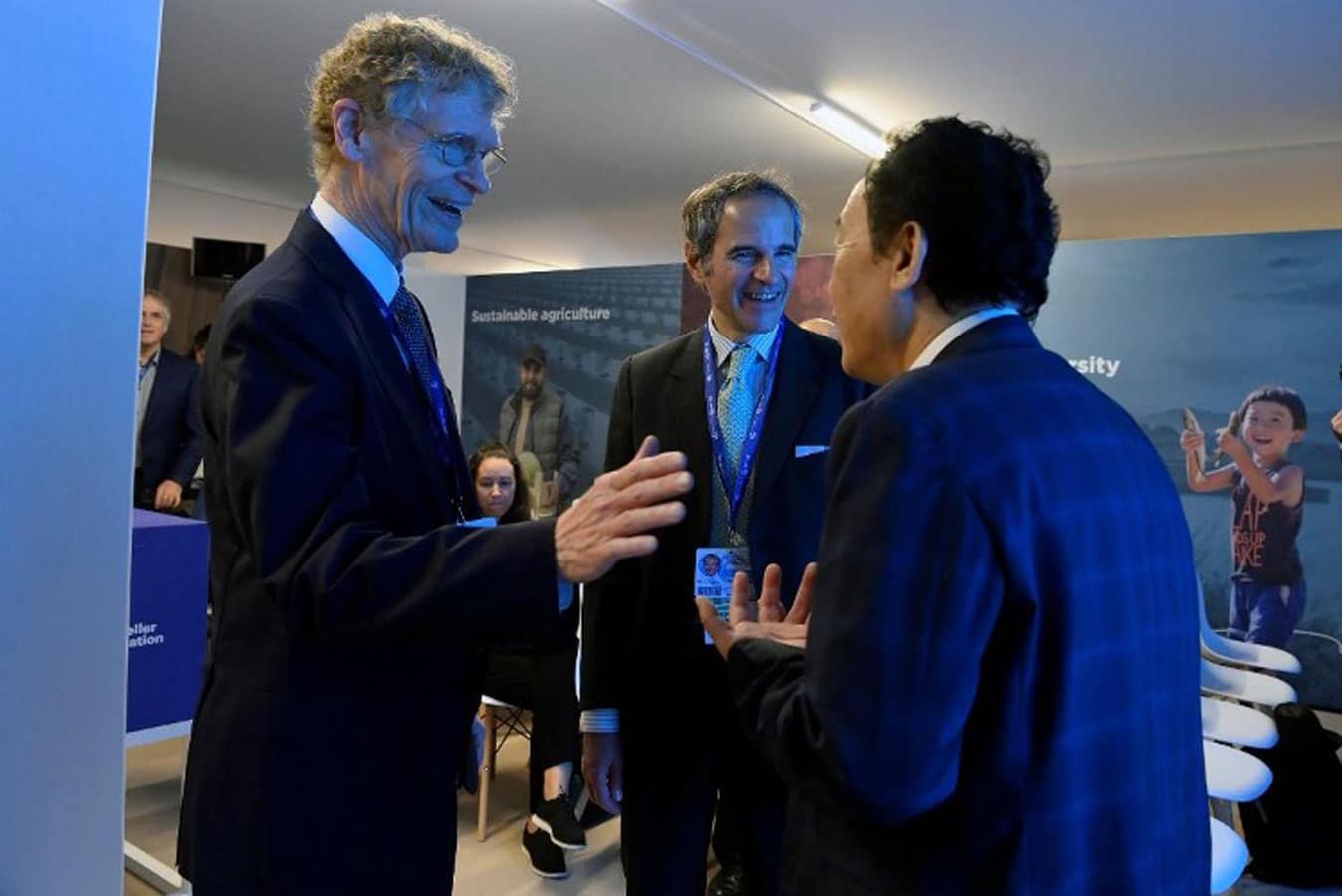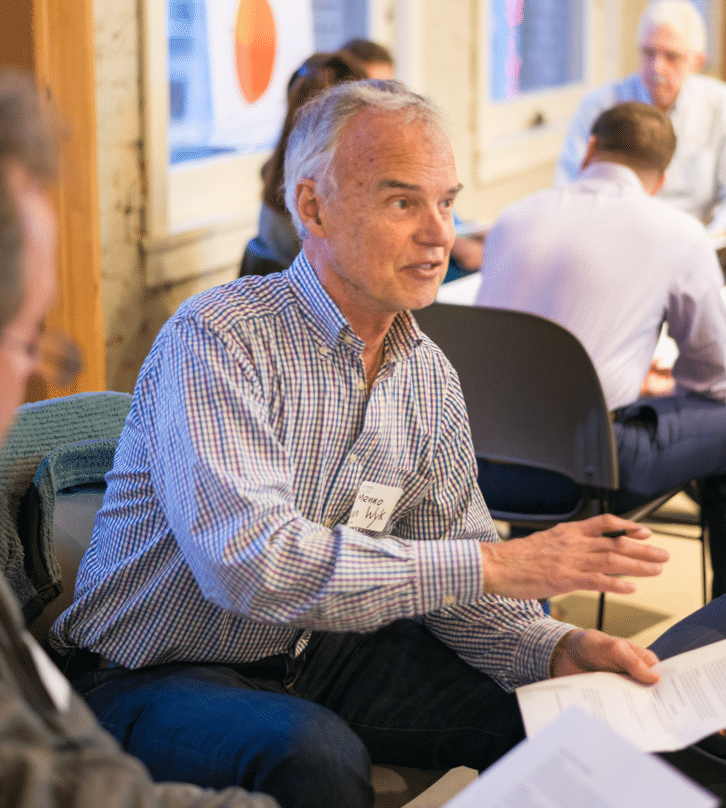At the recent UN climate change conference, agriculture was firmly on the agenda–and Grow Further was on a short list of organizations called out by the State Department as champions of innovative approaches to helping farmers adapt to a changing climate.
Every year, diplomats from around the world gather for the Conference of Parties to the United Nations Framework Convention on Climate Change to see if governments can do something about global warming. This year’s talks, COP28 in Dubai, closed in mid-December with nations pledging to begin weaning their economies off fossil fuels, a first for the annual COP gatherings.
Caitlin Welsh, Director of the Center for Strategic and International Studies’ Global Food and Water Security Program, said it was a watershed moment. “COP28 has put food firmly on the agenda this year,” she said. In another first for international climate talks, nations pledged to promote smallholder agriculture in the fight against climate change. On this topic, we were pleased to discover a prominent United States government official recognizing Grow Further and our efforts to achieve a more food-secure future.
A nod to smallholder innovation…and to Grow Further
Following COP28, Welsh and CSIS hosted an online panel to explore the significance of the “COP28 UAE Declaration on Sustainable Agriculture, Resilient Food Systems, and Climate Action.” The panel discussion featured Dr. Cary Fowler, US Special Envoy for Food Security. In addition to Welsh, two other officials participated alongside Fowler: Satu Santala, an external affairs and governance official at the International Fund for Agricultural Development (IFAD), and Noam Unger, Director of the CSIS Sustainable Development and Resilience Initiative.
Fowler stressed the significance of the Declaration as a means of getting governments to think more about agricultural innovation, in particular smallholder farming innovation. He said the US government was increasingly coming around to this view, with the US Department of State recently launching its Vision for Adapted Crops and Soils (VACS) program. On this note, Fowler gave a shoutout to Grow Further, one of the State Department’s inaugural “VACS Champions”, for joining the collaborative effort.
“We set up a VACS Champions program where NGOs and the private sector can pledge to increase their work in certain specific ways,” Fowler explained. “We have ADM and Bayer and Catholic Relief Services, Concern Worldwide, One Acre Fund, Grow Further, IBM. These organizations and companies, we’re expanding the list almost every day.”
The State Department had announced Grow Further’s inclusion in the VACS program earlier during the conference.
A new COP focus on food
Fowler and the others said COP28 was the first time the annual international climate change talks put food and agriculture squarely at the table. Fowler said he was especially pleased with the emphasis on the need for better innovation in agricultural research and development. “I’m very happy that [the declaration] speaks about the importance of agriculture research and development, including science-based innovations,” he said. “I think that it’s important that it highlights the role of women and smallholder farmers and nutrition. All these are important.
”As VACS Champions “NGOs and the private sector can pledge to increase their work in certain specific ways.”
–Dr. Cary Fowler, US Special Envoy for Food Security
The COP28 declaration on food and agriculture stresses that “any path to fully achieving the long-term goals of the Paris Agreement must include agriculture and food systems.” It calls on nations to boost the climate resiliency of smallholder farms “through financial and technical support for solutions, capacity building, infrastructure, and innovations.” For example, signatories recommended establishing “early warning systems” to help farmers better prepare for droughts or violent weather that may threaten their crops. The Declaration also calls for policies aimed at helping farmers earn more money for the food they produce while lessening agriculture’s impact on global warming. Nations promised to compare notes at COP29 “with a view to considering next steps in 2025 and beyond.” 159 countries signed the Declaration. “It’s very important that food and agriculture were highlighted for the first time in the ways that they were,” Unger said. “It’s really about societal and industrial shifts.”
Promises, promises…
At the same time, Fowler and the panelists at the CSIS talk acknowledged that governments don’t always live up to the commitments they make.
Santala argued that the international community seems to be backsliding when it comes to climate adaptation financing for smallholder farmers. She said vulnerable smallholder farmers in developing nations today receive only 0.8 percent of the world’s total climate financing directed at agriculture, a drop of 44 percent from prior years. “That’s completely in the wrong direction,” she said.
Still, the food security experts reflecting on the historic COP28 Declaration said they were keeping a mostly positive outlook.
COP28’s food security and agriculture reform declaration may represent a watershed moment, the experts said, but the real test of this newfound commitment to food and farming will come later.
“It will be what happens at COP29, and perhaps at COP30, and the lead up to COP29 and COP30, and what happens at the G7 and G20 meetings,” Fowler argued. “All the steps that we are going to take to get to those next two big COPS.”
In the meantime, Grow Further will continue to do our part to promote a better future for smallholder farmers, our promise as one of the US State Department’s first-ever VACS Champions.
— Grow Further
Photo credit: Dr. Cary Fowler (left) speaking with Food and Agriculture Organization director Qu Dongyu on the sides of COP28 in Dubai. Dean Calma, International Atomic Energy Agency (CC BY 2.0 DEED).




